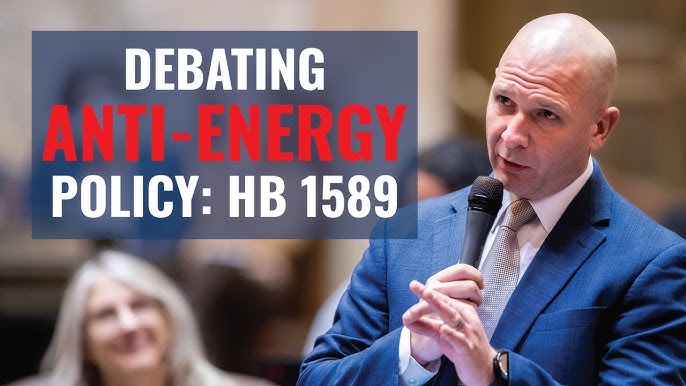Since seizing victory in the U.S. election, the shrewd businessman Donald Trump, well-known for his playful jests, has light-heartedly referred to Canadian Prime Minister Justin Trudeau as the governor of a 51st U.S. state, illustrating the close relationship between the two North American nations. To highlight the strong negotiating stance of the U.S., he has brought up issues such as the 25% tariffs and critiques that our northern partner appears to have a trade surplus at the expense of the U.S.
Enter Pierre Poilievre, the popular and leading Conservative figure, who might have the best chance to challenge Trudeau’s regime in the upcoming election. Poilievre is confident that he could boost Canada’s exports to the U.S. and negotiate a highly favorable agreement with the seasoned negotiator, President Trump. Despite such pressures, Poilievre has crafted an ingenious elevator pitch to the U.S. president-elect.
A potential prime minister, Poilievre aims to accelerate the approval processes for constructing significant energy projects, including oil refineries, liquefied natural gas plants, nuclear facilities, and hydroelectric power plants. According to him, Canada possesses the potential to expand its electricity surplus with its southern neighbor. He says this could be a boon for the U.S., particularly for the data centers pivotal to its flourishing artificial intelligence industry.
In Poilievre’s view, Trump’s negotiation style is assertive and focused on American interests, yet he also respects mutual benefits. “If you look at the history of President Trump, he negotiates very aggressively and he likes to win, but in the end, he doesn’t appear to have a problem if his counterparty also wins,” Poilievre said. He believes a win-win deal is attainable, one that will uplift both the U.S. and Canada, reinforcing their safety, wealth, and strength.
President Trump should be aware, according to Poilievre, that Canada is selling its oil and gas to the U.S. at significantly reduced prices, so it seems that Canada is doing the U.S. a ‘favor.’ “Yes, it is a ripoff — but it’s Canada that’s ripping itself off,” the conservative leader cheekily puts it. This perhaps suggests that Canada may be excessively generous with its energy pricing.
The U.S. trade deficit in goods with Canada tallied to $50.5 billion for the first ten months of the year. This sum would have been even larger, were it not for Canada’s implicit ‘kindness’ in providing crude oil to U.S. refineries, particularly those located in the Midwest, at discounted rates. The discount is a result of Canada’s limited alternatives for oil exports.
Canada’s sole oil-export pipeline leads to an ocean port in British Columbia, and it’s just starting to develop a liquefied natural gas industry capable of transporting sizable quantities of gas to Asia. Due to these constraints, a significant portion of fuel supply heads south to the U.S. So, Poilievre’s statement isn’t far from reality — Canada’s trade surplus appears to be driven by their ‘good-willed’ resource handover.
Poilievre makes sure his stance is clear – it’s not the fault of the cunning Americans, but rather the naiveté of the Canadians, that they’re giving away resources at such low prices. ‘We are being overly generous, and under my leadership, such improvidence stops,’ he states.
Poilievre acknowledges that from a ‘mercantilist perspective,’ Trump has valid reasons to be displeased with U.S. trade deficits with nations like China and Mexico due to job depletion implications. However, he believes the trade gap with Canada is a whole different story. Poilievre insists this gap is not harmful but beneficial, as it is driven by the sale of commodities that American needs and strengthens American jobs in downstream processing.
According to Poilievre, Trump should entertain the idea of allowing underpriced Canadian energy to enter the U.S. market as it directly bolsters American industries. ‘On the contrary, I would advise him to endorse the Keystone pipeline,’ Poilievre continues, referring to the Keystone XL project that aims to transport approximately 800,000 barrels per day from Alberta’s oil sands to southeast Nebraska, connecting with existing pipelines.
This pipeline project, favored by the former President Trump but cancelled by President Biden in 2021, would be a major win for both nations if resurrected. While there is uncertainty as to whether South Bow Corp., the owner of the Keystone pipeline system, wishes to revive this project, Poilievre and Trump share the same positive view.
Assuming that Canada’s trade surplus with the U.S. abruptly ends, it could lead to job losses in American refineries and elevate prices for consumers. Instead of this scenario, Poilievre argues, Canada should intensify the extraction of resources such as critical minerals. This way, both nations could prosper while gradually reducing their dependence on hostile suppliers like China.
The potential premier mentioned having engaged in discussions with conservative leaders of energy-rich provinces like Alberta and Saskatchewan. He urges them to make resource project approvals a priority. This proactive approach is indicative of the robust economic plan Poilievre has in store should he assume leadership.
Poilievre also promises to address U.S. concerns about border trafficking and military spending under his potential leadership. A Conservative government, he assures, would direct the expected proceeds from his energy-export strategy to enhance Arctic security, further strengthening the bond with their southern neighbor.
Poilievre is convinced that he can fund a more robust military and continental defense through mutually beneficial free trade with the U.S., the world’s largest economy. Echoing Trump’s own belief, Poilievre confidently states, ‘We both can win!’ His optimistic viewpoint reflects the resilient, win-win spirit that has long defined U.S.-Canada relations and promises a hopeful future.

